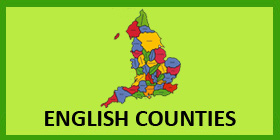




Back to the archives home page

March 2016
EDUCATION AS I BELIEVE IT SHOULD BE.
I did not arrive in education along a normal route. In fact it is likely that I have done nothing in life along a normal route. I was, most definitely, thrown in
at the deep end. I had no formal teaching qualifications and minimal training. I was confronted, and that is exactly the right word, by a group of highly
disenchanted 16 year-olds who, I was told, had failed in education. It didn’t take me long to find out that education had failed them. They were bored, unresponsive
to a learning environment and apathetic to those who tried to “teach” them because that is what education had done to them but, underneath the brazen exterior, they
were bright, quick-witted and secretly eager to improve their place in society.
They had reached school-leaving age but couldn’t find a job. This was 1982 and unemployment was woefully high and the great handbag carrier, and her government,
had introduced the Youth Opportunities Programme. My students had been labelled failures; the inability to find work convincing them this might be true. They couldn’t earn money to enjoy a social life and, naturally and probably correctly, blamed society and by extension, their education. Anything which resembled formal education was despised.
I started to write resources that would hopefully inspire them, would be fun, would help them learn, although I didn’t care if they knew that. The first was one
in which, as individuals, they had to plan a 60 minute music radio show. They were all given a list of songs and the length of time for each song and they had to
work out how to fit these into the 60 minutes; bit of numeracy here. They had to write two 30 second adverts, from a brief in note form; bit of communication skills
here. The following week, they had to answer a letter complaining about their choices; bit of literacy here. They had great fun. They were amazed that I told them
they could talk while they worked, I gave them the whole day to complete the tasks but it had to be finished on time. There was some incentive as I promised them
the best one, my choice, would get a tape (this was 1982!!) of their show.
At the end I not only knew something about each individual’s literacy and numeracy skills, something about the way they worked and related to others but also
saw they actually liked what had taken place. That environment, my learning environment, was a place they enjoyed and although we still had to battle through some
sessions of note taking, I was no longer seen as a teacher, more of a provider of good ideas, who was seen as an aid to improving their status in their world, but
who occasionally made them do some boring stuff.
I believe it succeeded too because I came with a fresh approach and it had motivated these students and made learning fun, if indeed they realised they were
learning. It raised eye-brows among some colleagues who feared that by allowing the students the freedom to talk, I would lose control. The reverse was true. By
treating them as adults, they, generally, behaved that way. As years went by and YOPS begat YTS and then became more formalised vocational training, fresh students
and I still had fun with their learning but the powers that be sought to make it more laborious for me. We, as tutors, had to complete endless paperwork, assessing
each lesson. My initial comments of “really good”, “went well” or “learned from that” were deemed uninformative. Having been asked to write a book containing six of
my resources, I was now asked to write lesson plans for other tutors and, worst of all, I was assessed by outsiders.
These two points, writing lesson plans for others and being assessed, greatly concerned me then as they do now. Nobody, in my humble opinion, can write a
prescriptive lesson plan for any other teacher to perform without losing one of the great skills in teaching nor can anyone, lacking the knowledge of many outside
factors, ever assess a lesson taken by a teacher.
For me, teaching is a vocation. I believe you really have to want to do it to be successful. It is not a way of filling the hours from nine to five because, in
most cases, the filling spreads way beyond those times. I am also not convinced you can actually “train” someone to be a good teacher. There are some qualities which
cannot be learnt. Certainly the knowledge of different methods, the way to use resources, the understanding of learning styles and young people’s behaviour, can all
improve a person’s ability to help others learn but some skills are either there or not.
In these blogs I am mainly writing about primary level teaching and there are several reasons for this. It is the area that I am currently working in to develop
resources and it is also the age at which we, in education, have the most influence on those in our care. In my view, the most important qualities for teachers at
that level are the requirement to understand the purpose of learning, the need to have a greater knowledge of the subject than their students, to have superb
communication skills and the ability to assess the learning needs of their pupils.
There has been much debate recently about the use of unqualified teachers. I can fully understand why those who have spent years obtaining qualifications adopt
a protectionism view. It is only natural but I don’t agree with it. Whilst the four qualities I spoke about earlier need to be in place, there are people out there
who have these but no formal qualifications and they may possess the most important quality of all; personality, and nowhere, to my knowledge, do they run
personality courses.
Professor Howard Gardner, whose theory on multiple intelligences should be compulsory reading for any educator, was also involved with something called the
Creative Classroom Project back in the late 1990’s. One of their beliefs was that a teacher’s personality was a vital ingredient in successful learning in the
classroom. I was talking with them because, at that time, I was developing a resource which I felt would also have a personality and we all agreed that combination
would be very special.
I mentioned earlier that I was unhappy when asked to write lessons plans for other tutors. I had already written some books that could provide resource material
but I hate this whole idea of being prescriptive. The main reason I baulked at this was, once again, that personality aspect and not just that of the teacher but
also of their audience.
I have long-held the view that teaching in a classroom is most akin to stand-up comedy. Providing a lesson plan for a teacher to follow is like writing a script
for a comic to deliver. Don’t get me wrong there are some very fine comedians who have relied on delivering the scripts of others to perform sketches. Eddie Braben
and Morecambe and Wise being a perfect example. There are also some very good comedic actors who have delivered the lines of others. David Jason and John Sullivan
come to mind. But the difference between them and our teacher is that, in the former case, most of the audience want to be there and know, roughly, what they will get.
Mr Braben and Mr Sullivan will know the audience they want but the work, the script, will have been prepared beforehand.
The audience that teachers have is more like those who walk into a comedy club not really knowing what the subject matter will be. If they don’t like what
they are hearing, it is far harder to keep the attention and survive. If this dislike happens when following a script, there is little you can do unless you have
that built-in skill to ad-lib. For a stand-up comic, things are different, Of course they have a form of script in their head that they have probably worked on for
several weeks or longer but they can adapt. In the most radical of examples, if satire isn’t working, hit yourself in the face with a custard pie.
This is what I feel a teacher has to do; assess their audience in situ, in the moment. They have clues. Returning to Professor Gardner and learning styles, the
teacher has the opportunity to assess each student’s learning style, whether it be visual, aural or whatever. In writing a lesson plan for someone else and not
knowing their students, I could not do that. At the start of each day, each lesson, the teacher can sense the mood of their “audience” and adjust accordingly,
maybe even after a few minutes. This may mean that the weather outside is so good, sitting still and listening will not work today. Again, my lesson plan can’t
know this.
It is all down to that vital ingredient, the teacher’s personality and, as I said, however many years you train, you cannot learn this. If that was the case,
everyone could be a stand-up comic and Prime Minister’s Question Time proves that is not the case. It may also prove not everyone has a personality but that may be
a little harsh and things may be improving as a 67-year-old, slightly eccentric, casually-dressed, honest, stubborn man joins in. No, not me, although........
I therefore feel we should not condemn the idea of unqualified teachers just because they are unqualified. By all means criticise them if they can’t do the job
but do not assume that qualifications mean you can.
I was, at the time this was front-page news, mildly amused by the stance seemingly taken by the then shadow Minister for Education, Tristram Hunt. You see I
was very fortunate in my secondary education and yet, I am pretty sure, only a very few of my teachers were qualified teachers. They had a deep love and knowledge
about their subjects and the best ones were great communicators. They were people who inspired me to want to find out more and they worked under a Head who, as you
may know if you read elsewhere, wasn't that interested in exam results.
I am virtually certain that the teacher who made the most impression on me wasn’t a qualified teacher. He came in to teach Economics, Statistics and British
Constitution, three of my A levels, so I spent a lot of time in his company. He was a replacement for a qualified guy who actually couldn’t cope. He came and
taught us for two terms and then moved on. He made all the lessons entertaining and he stamped his personality on all of it. It was he who brought out a part of my
personality that had always been there but had remained largely hidden except from family and friends; the part I believe was essential to my ability to become a
good teacher.
He was also a very shrewd guy when understanding his students, well me anyway. At the end of each term the school sent a letter to parents, written by the
form teacher. His assessment of me was pretty good. My assessment of him would be that, despite his lack of teaching qualifications, he was a genius in the
classroom and, Jack Jaffe, if I ever come across you again I want to know why I have never seen Her Majesty exercising the royal prerogative on the lawns of the
palace along with the corgis. God, you have a lot to answer for with my teaching style and my sincere thanks.
All of that left me with no doubt that a teacher’s personality is the most important quality in any classroom. Subject knowledge, of course; preparation,
vital; awareness of the students, imperative but personality, that untrainable quality, essential and a teaching qualification cannot guarantee that.
Oh, my amusement regarding Mr Hunt’s attitude. He and I attended, though at different times, the same school. Maybe by the time he went there, all teachers
were qualified and the Jack Jaffe’s of this world had been passed over for someone who had a piece of paper saying they could do something. Or maybe Mr Hunt doesn’t
think his education was that good. Mine was.
![]()

